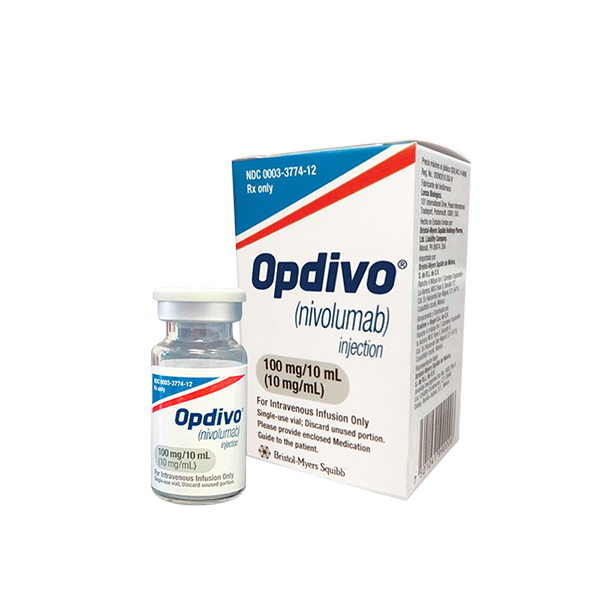Ono Pharmaceutical and Bristol-Myers Squibb have presented pooled data on two clinical trials -- CheckMate-017 and CheckMate-057 – for Opdivo (ingredient: nivolumab), at the International Association for the Study of Lung Cancer 2019 World Conference.

Outcomes for advanced non-small cell lung cancer have been poor, with five-year survival rates less than 5 percent with conventional chemotherapy. Opdivo, a programmed death-1 (PD-1) inhibitor, received approval in 2015 for patients with previously treated advanced non-small cell lung disease based on two randomized phase 3 trials, CheckMate 017 and CheckMate 057, which demonstrated improved overall survival compared to docetaxel.
The data on two clinical trials demonstrated patients taking Opdivo realized a higher than five-fold increase in five-year overall survival rate compared with the chemotherapy docetaxel.
The five-year overall survival rates of the Opdivo and Docetaxel-treated groups were 13.4 and 2.6 percent, respectively. The company demonstrated the survival improvement across all subgroups.
The safety outcomes of the studies were also consistent with the findings of previous studies on the treatment of Opdivo as a secondary treatment for non-small cell lung cancer. Only two of the 70 patients in the Opdivo-administered group had treatment-related adverse events between years 3 and 4, and no new treatment-related adverse events occurred between years 4 and 5.
Also, 32.2 percent of patients with objective response to Opdivo maintained their response for five years, while patients receiving docetaxel failed to maintain the objective response during the treatment period. The median duration of response was 19.9 months in the Opdivo group and 5.6 months in the docetaxel group.
"CheckMate 017 and 057 are the first phase 3 trials to report five-year outcomes for a PD-1 inhibitor in previously treated advanced NSCLC, demonstrating a greater than five-fold increase in five-year OS rates with Opdivio compared with docetaxel," said Dr. S. Gettinger, a professor at the Medical Oncology at Yale Cancer Center.
Sabine Maier, leading researcher at Bristol-Myers Squibb's thoracic cancers development unit, said, "Since the U.S. Food and Drug Administration approval in second-line non-small cell lung cancer in 2015, Opdivo has become an important treatment option for this population of patients, who historically faced five-year survival rates of less than 5 percent when treated with standard chemotherapy."
The long-term survival outcomes from these two studies in a large patient population add to the body of evidence supporting the durability of Opdivo-based regimens, which has now been demonstrated across multiple tumor types and lines of therapy, she added.

